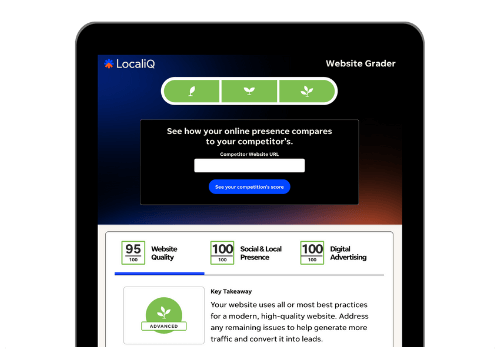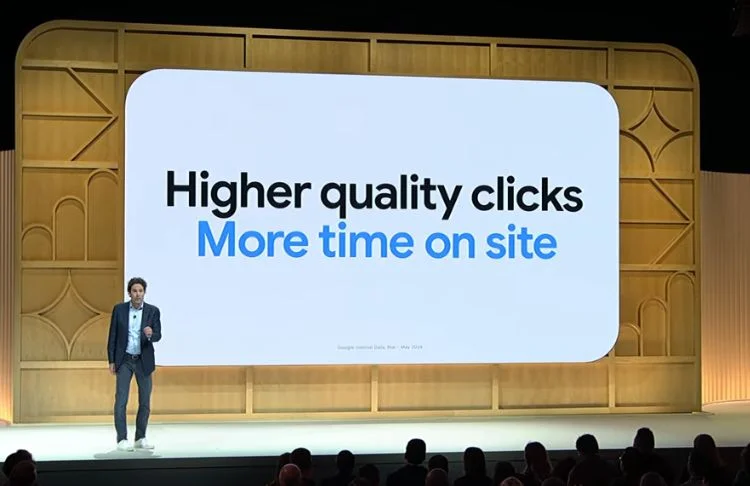If you’re reading this, chances are you already know how powerful a tool search engine optimization (SEO) can be to win business. Increasing your visibility and rankings in search results is one of the most efficient ways to scale revenue online.
But because Google’s algorithm is constantly changing, and the search engine giant takes steps daily to make the search results more relevant for users, what constitutes an “effective” SEO strategy changes frequently.
That means what worked in 2012 may not work in 2024, and what SEO marketers did last month may already be outdated.
This guide exposes seven SEO strategies you shouldn’t use because Google’s algorithm has made them obsolete.
Contents
- Stuffing keywords
- Using unedited AI content
- Farming out content
- Creating pages for every keyword variation
- Using non-granular keyword and domain data
- Buying links
- Spamming comments with links
💡 See which SEO tactics do work in the free guide: 20 Ways to Make Your Website More Visible on Google.
7 outdated SEO tactics to avoid
The seven SEO strategies on this list were winners at one point, but they’ll no longer help your pages land high up in search results. Even worse, a few could entice Google to penalize your website.
1. Stuffing keywords
Picture this: you’re looking for a way to keep your patio warm during the cooler months and stumble upon this article about types of firepits.

This feels like a webpage from 2005, but sadly, keyword stuffing like this still exists. Some marketers and content creators still make the SEO mistake of believing that the more times a keyword and its variations are jammed into an article, the better their chance of ranking for said keywords.
You don’t read many articles like this anymore because Google is doing everything possible to push them down the rankings. Search engines today look for relevant, helpful content above all, and while a post like the above is certainly relevant, it does not rise to the level of providing actual value.
Why? Because the content creator is shooting for traffic first and value second. Remember that concept, as it applies to pretty much every outdated strategy on this list.
👋 Get the Quick Guide to Local SEO Success and claim your rightful spot at the top of local search pages!
2. Using unedited AI content
Regardless of your opinion on AI’s use in marketing, it has made content creation much easier. Why spend hours researching and composing a post about fire pit tables, for example, when you can just tell ChatGPT to spin you up a quick 750-word post and copy and paste the product onto your blog?

The right prompt on ChatGPT can help you brainstorm content ideas.
The reason, if you’ve ever tried this approach, is that the result is pretty bad. AI content creation tools are still not good enough, without significant coaching, to create long-form content that is unique, relevant, useful, and, above all, human.
With enough time and effort, you can coax some of these things out of ChatGPT, but if you’re relying solely on AI to create engaging content, you’re going to come up seriously short. Google’s quality content guidelines (known as E-E-A-T) call for content written by credible authors with personal experience in the topic.
By all means, use AI in your marketing. It’s crazy good, and it works! But use it for what AI is best at, like topic ideation, creating frameworks, and sorting out large collections of data. But do not think of it like an author who is going to create compelling content that will rank on search engines.
3. Farming out content
Another thing Google’s E-E-A-T guidelines made clear is that, ideally, content from topic experts should take priority in search results (although AI Overviews muddy that message).
That doesn’t mean that if you run a roofing company, you must hire authors with doctorates in roofing systems to create all your content. But, they should at least be credible and knowledgeable about roofing, or have demonstrated knowledge in whatever subtopic they write about.
The problem with farming out content to creators without knowledge of a topic is that it will be created for quantity, not quality—which is something Google warns against. Not to mention, quality control can be extremely difficult if you’re getting a whole bunch of blog posts produced very quickly and without any expertise included in them.
This isn’t to say you can’t and shouldn’t outsource content if that’s part of your strategy. But you should be choosing authors or businesses with experience in your niche.
4. Creating pages for every keyword variation
In the early days of search engines, Google’s algorithm could not understand complex search queries. If you were looking to do some research on what food to feed your pup, you probably would have just searched “dog food” or “dog food near me.”
Today? You’re probably searching for something like, “What is the best natural dog food for my Alaskan Malamute?” Not only will Google understand what you’re asking, it will actually return a result relevant to that query.

Google’s algorithm has gotten way better at understanding niche keywords.
As Google’s algorithm has gotten more sophisticated and better at understanding complex queries, the way we search has changed, too. We now expect hyper-relevant results for anything that pops into our brains.
For SEOs and search marketers, creating several pages targeting slight variations of the same keyword is an outdated SEO tactic. You don’t need to create a page for “dog food” and one for “food for dogs” because the search intent is the same.
Now, if a related keyword has high search volume and is returning different results than your base keyword, then target it with its own page. But more often than not, Google is good enough to understand that people who use similar, but not exactly the same, words in a search may actually be searching for the same thing.
How can you tell whether a variant deserves its own page? Google it and see if the results are unique.
5. Using non-granular keyword and domain data
SEO is such a competitive game nowadays. Gone are the days when you could simply spin up a blog post targeting any old keyword, throw in a couple of internal links, and rank on page one. More businesses and marketers than ever are putting resources into this channel, so without a data-backed strategy, you’ll have a hard time getting traffic from search engines this way.
To compete, you’ll need to get granular in the data. At the very least, this means understanding the monthly search volume and keyword difficulty (aka the “competition”) of the keywords you are targeting. You want to target keywords that get some search volume but aren’t so competitive that you’ll never win a place on the results page.
You can go much deeper into your keyword research and use an SEO tool to find things like the number of backlinks the existing pages have (Google often ranks content with more backlinks higher).

Backlink reports, like this one from Ahrefs, give you more details to help you make smart keyword strategy decisions.
You can continue digging deeper to see the domain authority of the pages you’ll compete against and other pieces of data that help you choose the best keyword strategy.
In short, take the steps necessary to go past the broad and into the granular, and you’ll think like a modern SEO.
6. Buying links
This one is a bit complicated. If you’ve ever embarked on a link-building campaign, you know that link outreach has a relatively low success rate. It’s extremely challenging. Buying guest posts and backlinks from a vendor is way easier. And contrary to popular belief, buying backlinks isn’t strictly against Google’s policies, but they say you should tag them as such.

Google’s policy on buying and selling links.
In general, though, we don’t suggest buying links because it’s difficult to discern the link’s credibility. Instead, we recommend building links organically by creating linkable content and promoting it to potential linking websites.
No matter how you acquire them, don’t chase spammy or non-relevant links purely to increase your page authority and impress Google. For example, don’t push for a link to your healthcare website from a website that sells toilets because it will likely hurt, not help, your ability to rank.
Here’s a shortcut to make this distinction. If someone reading a web page would genuinely benefit from clicking a link to your website, then it’s a valid backlink to chase.
7. Spamming comments with links
In the Wild West of early SEO, webmasters often plastered their website’s links in comment sections, forums, and discussion boards to make it look like they had tons of backlinks. Google quickly realized that this wasn’t a good power for marketers to have. The search engine cracked down on this by eliminating these links from consideration when determining ranking authority.
Chances are, if you’ve written or read a blog before, you’ve probably seen at least one comment that looks like this:

A spammy comment like this is doing this site no favors.
Google has gotten wise to this tactic, so spamming comment sections across the internet with your links will not improve your search visibility.
Now, that doesn’t mean that you shouldn’t comment. Consider the principles we laid out at the start of this post, like quality over quantity. Be useful, helpful, and relevant. Don’t try to manipulate the algorithm. Posting links in comments may not earn you points with Google. Still, if you’re providing value and contributing to the discussion, you can drive referral traffic and increase your brand awareness, which can aid in your overall SEO efforts.
Don’t kill your outdated SEO tactics; adapt them!
If you made it all the way through this post, you probably noticed a theme. Never shun a tactic merely because it is outdated. Learn from it instead. In telling us what we shouldn’t do, most of these tactics provide an exact roadmap for how we should approach driving visibility and business value through SEO.
Here’s how you can turn each of these outdated SEO tactics into winning strategies:
- Stuffing keywords: Use relevant keywords organically.
- Using unedited AI content: Use AI to brainstorm or summarize data.
- Creating pages for every keyword variation: Create content that addresses related topics with unique search intent.
- Using non-granular keyword and domain data: Use keyword tools to find volume and competition data that help you choose the best keywords to target.
- Buying links: Look for ways to get relevant links from credible websites.
- Spamming comments with links: Engage thoughtfully in comments and discussion boards, adding links only when they aid the conversation.






